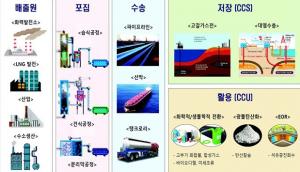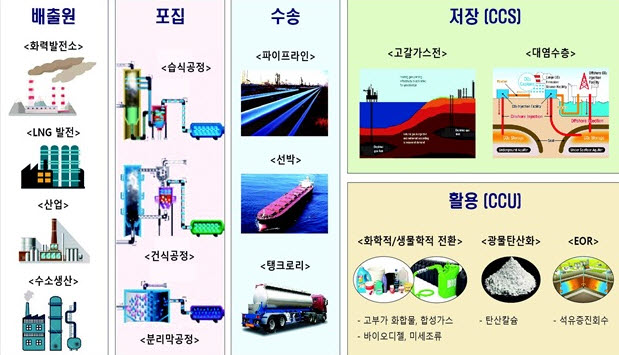
[ad_1]
Industry Minister Sung Yun-mo Visits ‘CCS Test Bench’ … Expanded Support Revealed
Minister Seong “To improve acceptance, we must give people confidence in security”

On the 4th, the Minister of Industry Sung Yun-mo visited the “CCS Test Bed (located on the Yesan campus of Gongju University)”, a site for the development of the carbon dioxide capture and storage demonstration technology.
This site visit aims to verify the current state of CCS technology development, encourage researchers and identify difficulties at the research site to establish more effective government support measures such as investments in technology development.
The CCS Storage Demonstration Test Bench is a demonstration facility that implements the marine carbon dioxide storage environment as it is. The test bed has artificially implemented storage, subsea piping, coastal terminals and offshore platforms, which are components of marine CCS storage facilities.
It is a facility to solve the technical problems that can occur in the carbon dioxide storage process through the demonstration of carbon dioxide injection and to advance the technology of the injection operations according to the changes in the various storage conditions. At the same time, it not only develops the carbon dioxide injection demonstration technology, but also plays a role as a platform for training CCS operating personnel.
Minister Sung Yun-mo said: “I ask researchers to do their best to develop and commercialize CCUS (Carbon Capture, Use and Storage) technology early, which is a key technology for carbon neutrality. I’ll go out. “
Minister Seong said: “In order to increase acceptance of the CCUS, it is important to give people confidence in the safety of the facilities,” he said. Asked.
CCUS is a technology that captures the CO2 generated while using fossil fuels such as power generation and industries, then safely stores it in the ground or ocean or uses it as useful materials such as chemical materials. It can be said to be the only means of mass reduction of CO2 for fossil fuel combustion processes such as coal-fired power plants and industries where CO2 emissions are unavoidable, such as cement, steel and products. petrochemicals.
CCUS technology consists of collection technology, transport-storage technology and usage technology. Capture technology is a process that selectively recovers only CO2, and is largely divided into pre-combustion and post-combustion depending on the capture time and wet and dry depending on the technological method. Transportation is the transportation of captured CO2 to storage using vehicles, railways, ships and pipes. Storage is a technology that injects CO2 into the deep layers of the earth and the sea such as waste oil gas fields and salt water. The use is the conversion of CO2 into precious substances by chemical and biological methods.
Copyright © Energy Daily Unauthorized reproduction and redistribution prohibited
Source link